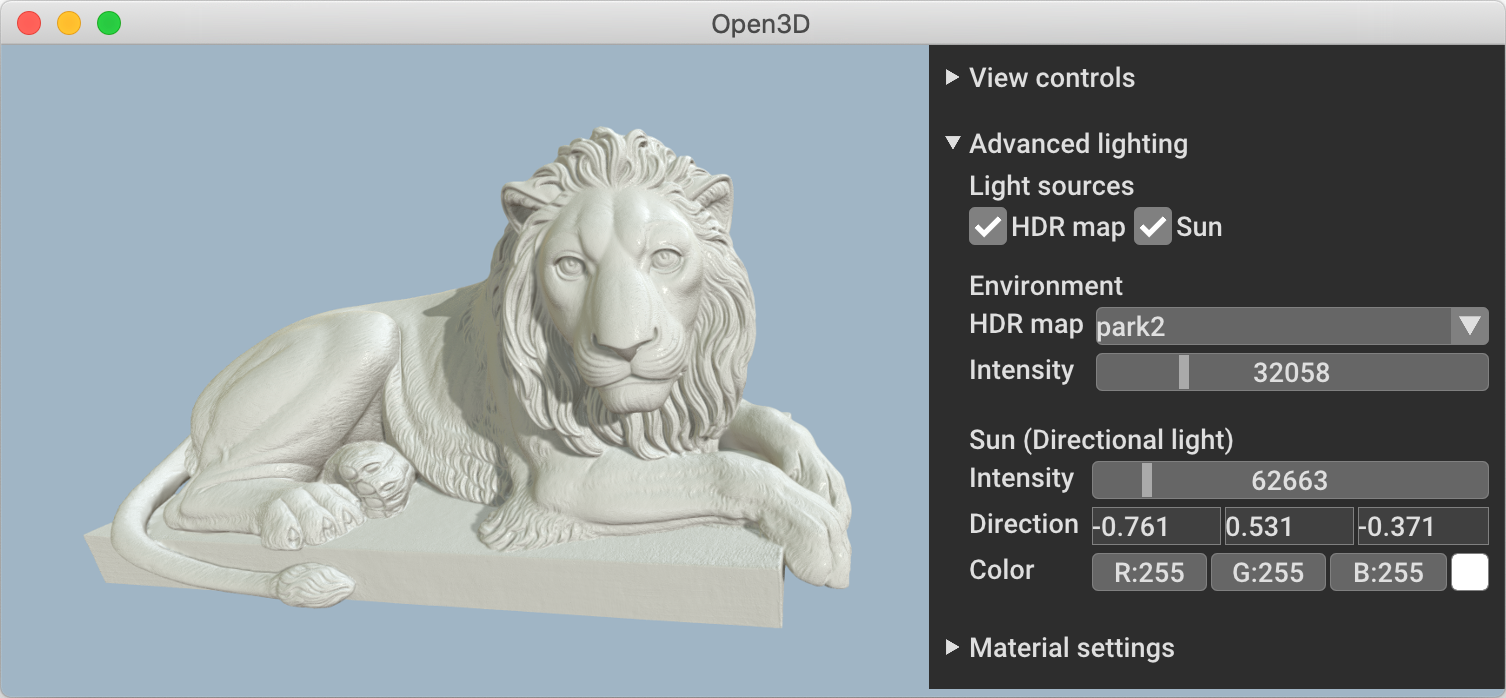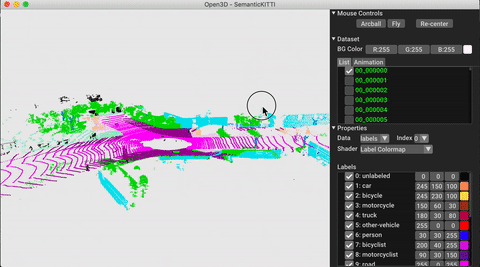|
Open3D (C++ API)
0.19.0
|
|
Open3D (C++ API)
0.19.0
|

Open3D is an open-source library that supports rapid development of software that deals with 3D data. The Open3D frontend exposes a set of carefully selected data structures and algorithms in both C++ and Python. The backend is highly optimized and is set up for parallelization. We welcome contributions from the open-source community.
Core features of Open3D include:
Here's a brief overview of the different components of Open3D and how they fit together to enable full end to end pipelines:
For more, please visit the Open3D documentation.
Also checkout this great introduction to modern 3D data processing that features Open3D:
3D Data Science with Python by Dr. Florent Poux
From the author:
Throughout the book, I showcase how Open3D enables efficient point cloud processing, mesh manipulation, and 3D visualization through practical examples and code samples. Readers learn to leverage Open3D's powerful capabilities for registration, segmentation, and feature extraction in real-world 3D data science workflows.
Pre-built pip packages support Ubuntu 20.04+, macOS 10.15+ and Windows 10+ (64-bit) with Python 3.8-3.11.
To get the latest features in Open3D, install the development pip package. To compile Open3D from source, refer to compiling from source.
Checkout the following links to get started with Open3D C++ API
To use Open3D in your C++ project, checkout the following examples

Open3D-Viewer is a standalone 3D viewer app available on Debian (Ubuntu), macOS and Windows. Download Open3D Viewer from the release page.

Open3D-ML is an extension of Open3D for 3D machine learning tasks. It builds on top of the Open3D core library and extends it with machine learning tools for 3D data processing. To try it out, install Open3D with PyTorch or TensorFlow and check out Open3D-ML.
Please cite our work if you use Open3D.